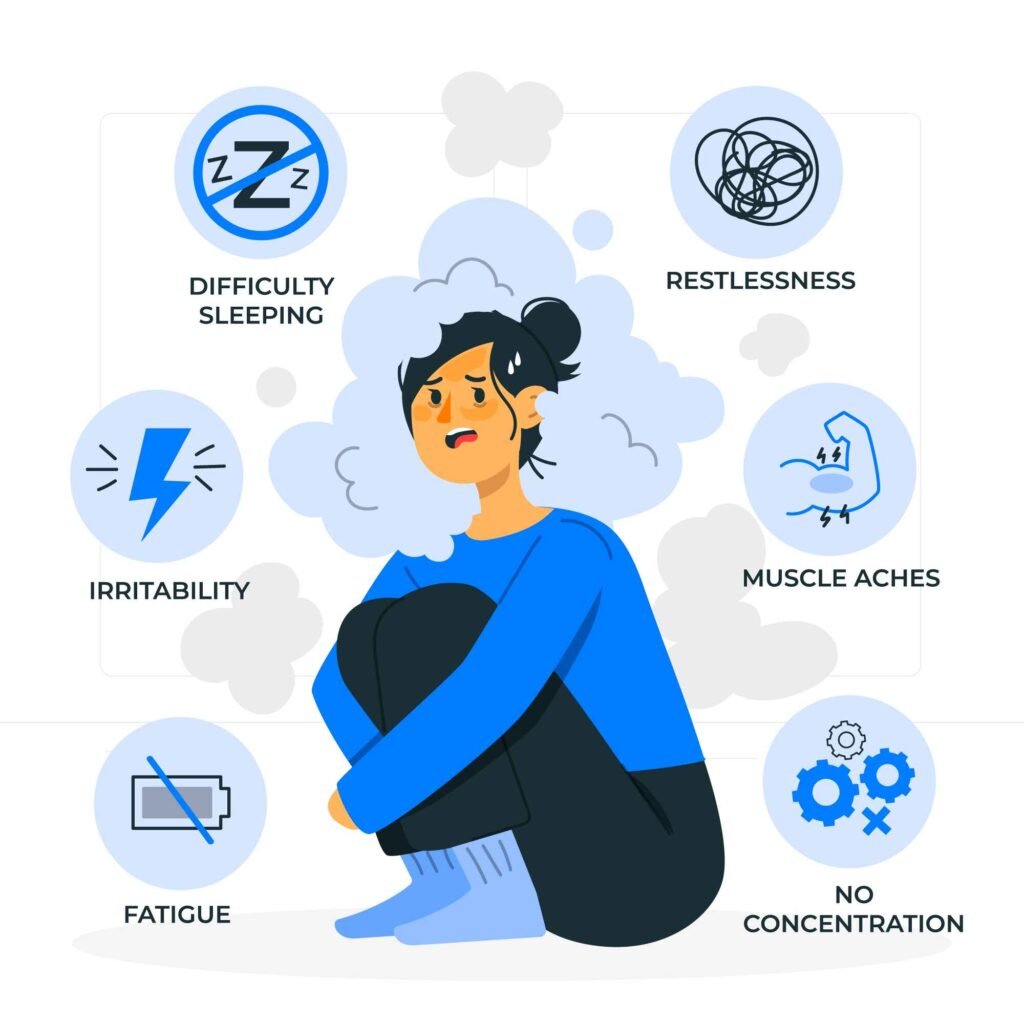
Men’s Mental Health in the Workplace: Strategies for Coping with Stress and Burnout
Introduction: Breaking the Silence on Men’s Mental Health at Work
In today’s fast-paced and competitive work environments, men often face unique pressures that can severely impact their mental health. The stigma around discussing feelings, expectations to maintain a tough exterior, and long work hours can create a recipe for stress and burnout. Yet, open conversations about men’s mental health are still rare, which leads many to suffer in silence.
In this blog, we’ll explore why men are particularly vulnerable to stress and burnout in the workplace, the signs to watch out for, and effective strategies to manage mental health challenges. If you are a man struggling with workplace stress or know someone who is, understanding these strategies can make a significant difference.
Why Men Face Unique Challenges with Mental Health at Work
Societal Expectations and Pressure to Perform
From an early age, many men are taught to be strong providers, dependable workers, and resilient individuals. These expectations can lead men to avoid seeking help or expressing vulnerability in the workplace. Suppressing emotions can increase anxiety and stress, causing mental health issues to build up over time.
Fear of Stigma and Job Insecurity
Many men worry that admitting to mental health struggles will be seen as a sign of weakness or incompetence. The fear of being judged, overlooked for promotions, or even losing their job prevents them from addressing their mental health openly. This culture of silence perpetuates burnout and chronic stress.
Lack of Mental Health Resources in Male-Dominated Industries
Fields like construction, manufacturing, engineering, and finance are traditionally male-dominated and often lack accessible mental health resources or support systems. In these environments, mental well-being can take a back seat to productivity and performance metrics.
Recognizing the Signs of Stress and Burnout in Men
Understanding the warning signs of stress and burnout is crucial for early intervention. Men may exhibit different symptoms compared to women, making it important to recognize these patterns.
Physical Symptoms
- Frequent Headaches or Muscle Pain: Persistent tension can lead to chronic pain, particularly in the neck, back, and shoulders.
- Fatigue and Insomnia: Despite feeling exhausted, men dealing with high stress may struggle to fall asleep or stay asleep.
- Digestive Issues: Stomach problems, such as ulcers or irritable bowel syndrome (IBS), can worsen under prolonged stress.
Emotional and Behavioral Symptoms
- Irritability and Anger: Workplace stress can manifest as short tempers or outbursts of frustration.
- Withdrawal from Colleagues: Men might distance themselves from team activities or social interactions to cope with stress.
- Loss of Motivation: Tasks that once felt manageable may now seem overwhelming or pointless.
Substance Use and Unhealthy Coping Mechanisms
To manage stress, some men may turn to alcohol, drugs, or excessive work hours. These temporary fixes often worsen mental health in the long run, leading to a dangerous cycle of dependency and stress.
Effective Strategies for Coping with Stress and Burnout
Now that we understand the challenges and signs, let’s explore practical strategies for managing stress and preventing burnout.
1. Develop a Support Network
Building a solid support network at work and outside of it is essential. Reach out to trusted colleagues, friends, or family members who can provide a listening ear. Sharing your experiences can relieve stress and make challenges feel less daunting.
Tips to Create Your Support System:
- Join workplace support groups or forums.
- Participate in team-building activities to foster trust.
- Seek out mentors or mental health advocates in your company.
2. Prioritize Physical Health
Physical health and mental well-being are closely linked. Regular exercise, proper nutrition, and adequate sleep can significantly reduce stress and improve mood.
Incorporate These Healthy Habits:
- Exercise Regularly: Aim for at least 30 minutes of moderate exercise most days of the week.
- Balanced Diet: Focus on nutrient-rich foods, including whole grains, lean proteins, fruits, and vegetables.
- Sleep Hygiene: Maintain a consistent sleep schedule and create a relaxing bedtime routine to improve sleep quality.
3. Practice Mindfulness and Stress Reduction Techniques
Mindfulness practices can help you stay present, reduce anxiety, and manage stress effectively. Techniques such as deep breathing, meditation, and mindfulness exercises are powerful tools for workplace stress.
Easy Mindfulness Practices:
- Box Breathing: Inhale for 4 counts, hold for 4 counts, exhale for 4 counts, and hold again for 4 counts.
- Mindful Breaks: Take short breaks to stretch, breathe deeply, or simply step outside for fresh air.
- Guided Meditation Apps: Apps like Headspace or Calm can offer structured sessions to reduce stress.
Creating a Healthier Work-Life Balance
4. Set Boundaries at Work
One of the most effective ways to combat burnout is by setting clear boundaries between work and personal life. Establishing these limits can help maintain mental and emotional well-being.
How to Set Boundaries:
- Limit After-Hours Communication: Avoid checking emails or messages during personal time.
- Take Regular Breaks: Schedule short breaks throughout the day to recharge.
- Communicate Your Needs: Let your manager and colleagues know your availability and limits.
5. Take Time Off for Mental Health
Many men hesitate to use vacation days or mental health leave due to guilt or fear of falling behind. However, taking time off is essential for long-term productivity and mental well-being.
Tips for Taking Mental Health Breaks:
- Plan Regular Vacation Days: Schedule periodic breaks throughout the year.
- Use Mental Health Days: If your workplace offers mental health leave, use it without hesitation.
- Unplug During Time Off: Disconnect from work-related communication to fully recharge.
Workplace Initiatives to Support Men’s Mental Health
While individual strategies are essential, workplace culture and initiatives play a crucial role in supporting men’s mental health. Companies that prioritize mental well-being not only reduce employee burnout but also boost productivity and morale. Here are effective workplace initiatives that can make a difference.
1. Implement Employee Assistance Programs (EAPs)
Employee Assistance Programs (EAPs) provide confidential counseling and support services for employees dealing with personal or work-related issues. By offering professional help, companies can give men a safe space to discuss their challenges.
Benefits of EAPs:
- Confidential access to mental health professionals.
- Early intervention for stress and burnout.
- Reduced stigma around seeking help.
2. Offer Mental Health Training for Managers
Managers are often the first to notice signs of stress or burnout in their team members. Providing mental health training equips managers with the tools to identify red flags and offer appropriate support.
Key Areas of Mental Health Training:
- Recognizing signs of stress and burnout.
- Effective communication techniques for discussing mental health.
- How to create a supportive and inclusive work environment.
3. Promote Flexible Work Policies
Rigid work hours can exacerbate stress and make it difficult for men to balance personal and professional responsibilities. Flexible work arrangements, such as remote work or flexible hours, can significantly reduce workplace stress.
Examples of Flexible Work Policies:
- Hybrid Work Models: Allow employees to work both remotely and in-office.
- Flexible Schedules: Enable employees to adjust their hours to fit their needs.
- Compressed Workweeks: Offer options like four-day workweeks for improved work-life balance.
4. Develop Mental Health Awareness Campaigns
Raising awareness about men’s mental health can help break down stigmas and encourage open dialogue. Workplace campaigns can include workshops, guest speakers, and mental health days dedicated to education and support.
Ideas for Mental Health Awareness Campaigns:
- “Movember” Initiatives: Promote men’s health awareness in November.
- Mental Health Days: Designate days for mental health education and activities.
- Guest Speakers: Invite mental health experts to share strategies and insights.
The Role of Leadership in Supporting Men’s Mental Health
Leadership sets the tone for workplace culture. When leaders prioritize mental health, employees are more likely to feel supported and valued. Here’s how leaders can play an active role in supporting men’s mental health.
1. Lead by Example
Leaders who openly discuss their own mental health challenges can inspire others to do the same. Vulnerability from leadership helps break the stigma and shows that seeking help is a sign of strength, not weakness.
Ways Leaders Can Lead by Example:
- Share personal stories about managing stress.
- Take mental health days and encourage employees to do the same.
- Participate in mental health initiatives and workshops.
2. Foster an Open-Door Policy
An open-door policy encourages employees to approach leadership with their concerns without fear of judgment. This creates a culture of trust and transparency, where men feel safe discussing their mental health.
Tips for Implementing an Open-Door Policy:
- Make time for one-on-one check-ins with employees.
- Actively listen to employees’ concerns without interrupting.
- Offer solutions or resources for managing stress.
3. Recognize and Reward Efforts
Acknowledging employees’ hard work and achievements can boost morale and reduce stress. When employees feel valued, they are less likely to experience burnout.
Ways to Recognize Employees:
- Offer public recognition during team meetings.
- Provide incentives like extra time off or bonuses.
- Send personalized thank-you notes to show appreciation.
4. Encourage Work-Life Balance
Leaders should model and promote work-life balance by respecting boundaries and encouraging employees to prioritize personal well-being.
Practical Steps for Promoting Work-Life Balance:
- Avoid sending emails or messages after work hours.
- Encourage employees to take full lunch breaks and vacations.
- Set realistic deadlines to prevent overwork.
Creating a Sustainable Mental Health Culture
To achieve lasting change, companies must integrate mental health into their core values and operations. Creating a sustainable mental health culture benefits everyone and leads to a healthier, more productive workplace.
1. Regularly Assess Workplace Mental Health
Conduct regular assessments to gauge the mental health of employees and identify areas for improvement. Surveys, focus groups, and anonymous feedback can provide valuable insights.
Benefits of Workplace Mental Health Assessments:
- Identify stressors and areas needing improvement.
- Measure the effectiveness of mental health initiatives.
- Empower employees by giving them a voice in mental health policies.
2. Provide Ongoing Mental Health Education
Mental health education shouldn’t be a one-time event. Offering continuous education ensures employees stay informed about managing stress and supporting their mental well-being.
Ideas for Ongoing Education:
- Monthly workshops on mental health topics.
- Access to online courses and resources.
- Regular updates and tips through newsletters or intranet.
3. Cultivate a Culture of Empathy
An empathetic workplace culture fosters understanding and support. When empathy becomes a core value, employees are more likely to support each other through challenges.
Ways to Promote Empathy:
- Host empathy training sessions.
- Encourage team members to check in on one another.
- Celebrate acts of kindness and support within the team.
The Long-Term Benefits of Addressing Men’s Mental Health
Investing in men’s mental health isn’t just good for employees; it’s good for business. Companies that prioritize mental health enjoy numerous long-term benefits, including:
1. Increased Productivity and Performance
Employees who feel mentally healthy are more focused, engaged, and productive. Reduced stress levels lead to higher quality work and fewer mistakes.
2. Lower Turnover Rates
Supporting mental health reduces burnout and increases job satisfaction, leading to lower employee turnover. Retaining experienced employees saves companies time and resources on recruitment and training.
3. Improved Workplace Morale
A mentally healthy workplace fosters positive relationships, teamwork, and morale. Employees are more likely to feel loyal to a company that values their well-being.
4. Enhanced Company Reputation
Companies known for supporting mental health attract top talent and gain respect from clients and partners. A reputation for empathy and well-being sets businesses apart in competitive markets.
Personal Strategies for Building Long-Term Mental Resilience
While workplace policies and leadership support are essential, individual strategies also play a crucial role in maintaining mental health. Building long-term mental resilience helps men better cope with workplace challenges and stressors. Here are some effective strategies to foster resilience and mental well-being.
1. Develop Emotional Awareness
Emotional awareness is the ability to recognize and understand your feelings. Men often suppress emotions due to societal expectations, but acknowledging and processing these feelings is crucial for mental health.
Steps to Build Emotional Awareness:
- Journaling: Write about your daily experiences and how they make you feel. This can help identify stressors and patterns.
- Identify Triggers: Recognize what situations or interactions cause stress or anxiety.
- Practice Self-Reflection: Take time to analyze your responses to stressful situations and consider healthier ways to cope.
2. Set Realistic Goals
Unrealistic expectations, whether self-imposed or from others, can lead to stress and burnout. Setting achievable, well-defined goals can help maintain a sense of accomplishment and control.
SMART Goal-Setting Framework:
- Specific: Define your goals clearly (e.g., “Complete project X by Friday”).
- Measurable: Track progress (e.g., “Work on the project for 2 hours daily”).
- Achievable: Ensure the goal is realistic given your resources.
- Relevant: Align goals with personal and professional priorities.
- Time-Bound: Set deadlines to stay on track.
3. Cultivate Healthy Coping Mechanisms
Developing positive ways to manage stress is essential for long-term mental health. Instead of relying on unhealthy coping mechanisms, explore activities that nourish your mind and body.
Healthy Coping Strategies:
- Exercise Regularly: Physical activity releases endorphins, improving mood and reducing stress.
- Practice Hobbies: Engage in activities like reading, gardening, or playing music to unwind.
- Connect with Nature: Spending time outdoors can calm the mind and boost mental health.
Workplace Communication: Speak Up and Advocate for Your Needs
1. Communicate Openly with Your Manager
If workplace stress is impacting your mental health, having an open conversation with your manager can help. While discussing mental health at work may feel intimidating, clear communication can lead to solutions and support.
Tips for Effective Communication:
- Be Honest and Specific: Clearly explain what aspects of work are causing stress and how it affects your performance.
- Offer Solutions: Suggest changes that could help, such as adjusted deadlines or flexible work hours.
- Request Resources: Ask for access to mental health resources or support programs if needed.
2. Advocate for Mental Health Policies
If your workplace lacks mental health support, advocating for change can benefit both you and your colleagues. Many companies are open to suggestions that improve employee well-being.
Ways to Advocate:
- Propose Mental Health Workshops: Suggest training sessions or guest speakers on mental health topics.
- Support Peer-Led Initiatives: Help organize mental health support groups or wellness challenges.
- Share Research: Present data showing how mental health support boosts productivity and retention.
3. Use Assertive Communication Techniques
Assertive communication helps you express your needs confidently and respectfully. This approach can reduce misunderstandings and improve workplace relationships.
Assertive Communication Tips:
- Use “I” Statements: Focus on your feelings and needs (e.g., “I feel overwhelmed when deadlines are unclear”).
- Maintain Eye Contact: Demonstrate confidence and sincerity.
- Stay Calm and Respectful: Avoid aggressive language or tone.
The Importance of Self-Care for Preventing Burnout
Self-care is not a luxury—it’s a necessity for maintaining mental and physical health. Prioritizing self-care can help men prevent burnout and manage workplace stress more effectively.
1. Establish a Daily Self-Care Routine
A consistent self-care routine helps create structure and balance in your life. Small daily practices can lead to significant improvements in mental health over time.
Sample Self-Care Routine:
- Morning: Start the day with stretching, meditation, or a nutritious breakfast.
- During Work: Take regular breaks, practice deep breathing, and stay hydrated.
- Evening: Wind down with a relaxing activity like reading, journaling, or taking a warm bath.
2. Prioritize Sleep
Quality sleep is vital for mental resilience. Poor sleep can increase anxiety, irritability, and fatigue, making workplace stress harder to manage.
Tips for Better Sleep:
- Create a Sleep Schedule: Go to bed and wake up at the same time each day.
- Limit Screen Time: Avoid electronics at least an hour before bed.
- Optimize Your Sleep Environment: Ensure your bedroom is dark, quiet, and cool.
3. Practice Mindfulness and Meditation
Mindfulness and meditation can help reduce anxiety, improve focus, and enhance emotional well-being. Even a few minutes a day can make a difference.
Simple Mindfulness Practices:
- Body Scan Meditation: Focus on each part of your body, releasing tension.
- Mindful Breathing: Pay attention to your breath, inhaling and exhaling slowly.
- Gratitude Journaling: Write down three things you’re grateful for each day.
Building a Supportive Network at Work
1. Find a Workplace Mentor
A mentor can provide guidance, support, and a listening ear when dealing with workplace challenges. Having someone who understands your professional journey can alleviate stress and boost confidence.
How to Find a Mentor:
- Identify Senior Colleagues: Look for someone whose career path you admire.
- Ask for Advice: Start by seeking advice on specific challenges.
- Build the Relationship: Meet regularly to discuss goals and challenges.
2. Connect with Colleagues
Building positive relationships with colleagues creates a supportive work environment. Knowing you have allies can make challenges feel more manageable.
Ways to Connect:
- Join Workplace Events: Attend social gatherings or team-building activities.
- Participate in Committees: Join groups or initiatives that align with your interests.
- Offer Support: Be there for colleagues who may also be struggling.
3. Utilize Peer Support Groups
Peer support groups allow employees to share experiences, strategies, and encouragement. These groups can provide a sense of community and reduce feelings of isolation.
Benefits of Peer Support Groups:
- Safe Space: Share challenges without fear of judgment.
- Shared Experiences: Realize you’re not alone in facing workplace stress.
- Practical Advice: Learn coping strategies from peers.



